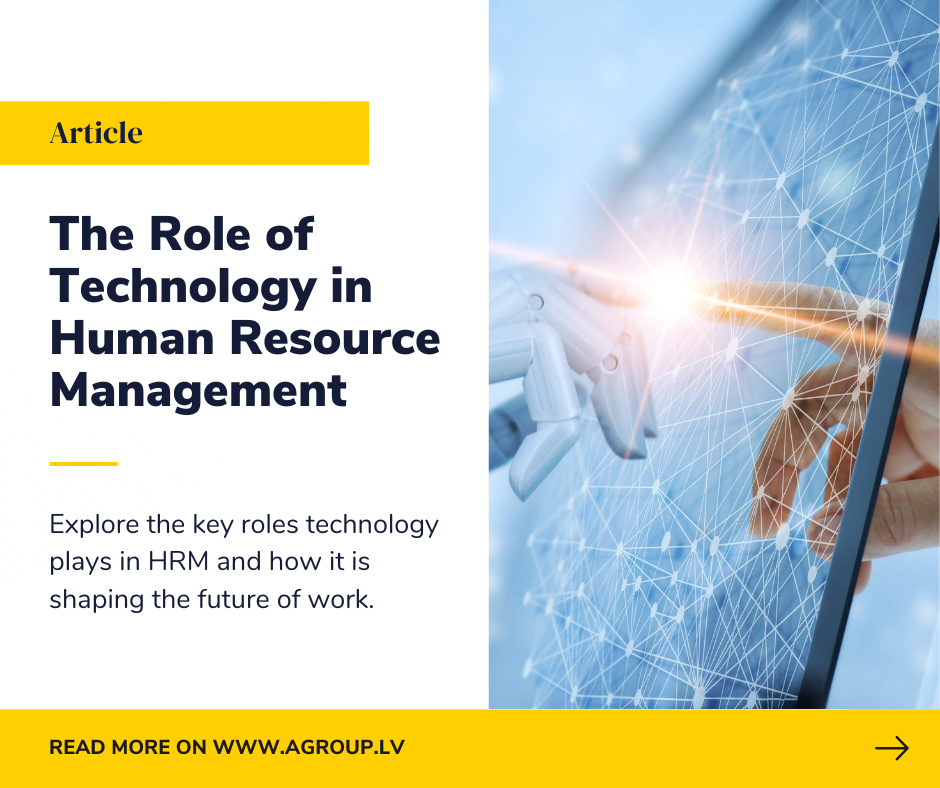The landscape of Human Resource Management (HRM) has evolved dramatically over the past few decades, and technology has been a primary driver of this transformation. From streamlining administrative processes to enhancing employee engagement, technology has become an indispensable tool for HR professionals. This article explores the key roles technology plays in HRM and how it is shaping the future of work.
1. Automation of Administrative Tasks
One of the most significant contributions of technology to HRM is the automation of repetitive administrative tasks. Tools like payroll software, time tracking systems, and employee self-service portals reduce the burden of manual work. This allows HR teams to focus on strategic initiatives, such as talent development and organisational growth, rather than spending time on paperwork.
For instance, automated payroll systems ensure accurate and timely compensation, minimizing errors and saving time. Similarly, applicant tracking systems (ATS) streamline the recruitment process by automating resume screening and interview scheduling.
2. Data-Driven Decision-Making
HR technology enables organisations to leverage data analytics for more informed decision-making. Human Resource Information Systems (HRIS) and HR analytics tools provide insights into employee performance, retention rates, and workforce trends. By analysing this data, HR professionals can identify potential issues, measure the impact of their strategies, and make data-backed decisions to improve organisational efficiency.
For example, predictive analytics can help identify employees who may be at risk of leaving, allowing companies to take proactive measures to retain top talent. Similarly, data on workforce demographics can guide diversity and inclusion initiatives.
3. Enhancing Employee Engagement
Employee engagement is a critical factor in organisational success, and technology plays a pivotal role in fostering it. Tools like employee engagement platforms, pulse surveys, and communication apps enable real-time feedback and open channels of communication. These tools help HR teams gauge employee sentiment, address concerns promptly, and create a more inclusive workplace culture.
Gamification and personalised learning platforms also enhance engagement by making training and development more interactive and tailored to individual needs. Employees who feel valued and supported are more likely to stay motivated and committed to their roles.
4. Recruitment and Talent Acquisition
The recruitment landscape has been revolutionised by technology. Online job portals, social media platforms, and AI-powered recruitment tools have expanded the reach of talent acquisition efforts. Companies can now source candidates globally, assess their skills using virtual assessments, and conduct interviews remotely.
Artificial intelligence (AI) further enhances recruitment by analyzing candidate profiles, predicting cultural fit, and even conducting initial screening interviews. This not only saves time but also improves the quality of hires.
5. Facilitating Remote Work
The rise of remote and hybrid work models has underscored the importance of technology in HRM. Collaboration tools like Slack, Microsoft Teams, and Zoom have become essential for maintaining communication and productivity among distributed teams. Additionally, cloud-based HR systems allow employees and managers to access critical information from anywhere, ensuring continuity and efficiency.
Performance management tools adapted for remote teams also help managers track progress and provide constructive feedback, ensuring that employees stay aligned with organisational goals.
6. Supporting Diversity, Equity, and Inclusion (DEI)
Technology is playing a significant role in advancing diversity, equity, and inclusion initiatives. AI-driven tools can help reduce unconscious bias in recruitment by anonymising resumes or using algorithms to assess candidates based solely on their skills and qualifications. Analytics platforms provide insights into workforce diversity, enabling organizations to set and track DEI goals effectively.
7. Enhancing Learning and Development
Continuous learning is essential in today’s fast-paced work environment, and technology makes it more accessible and engaging. Learning Management Systems (LMS), e-learning platforms, and virtual reality (VR) training modules enable employees to upskill and reskill at their own pace.
Microlearning modules, gamified learning experiences, and AI-driven personalised learning paths cater to diverse learning preferences, ensuring that employees can acquire the skills they need to succeed in their roles.
The Future of HR Technology
As technology continues to evolve, so will its applications in HRM. Emerging technologies like artificial intelligence, machine learning, and blockchain are poised to further transform HR practices. For instance, blockchain can enhance the security of employee records, while AI can enable more sophisticated talent management strategies.
Moreover, as organisations prioritise employee well-being, technologies that monitor mental health, support work-life balance, and promote wellness are expected to gain traction. Virtual reality and augmented reality may also revolutionise onboarding, training, and team-building activities.
Technology has become a cornerstone of modern Human Resource Management, enabling organisations to operate more efficiently, make data-driven decisions, and create better experiences for employees. By embracing technological advancements, HR professionals can drive organizational success and prepare their workforces for the challenges of the future. As we move forward, the synergy between technology and HRM will undoubtedly continue to shape the world of work in profound and exciting ways.
Ask a perfect solution of HR Technology for your company: HRB Portal

